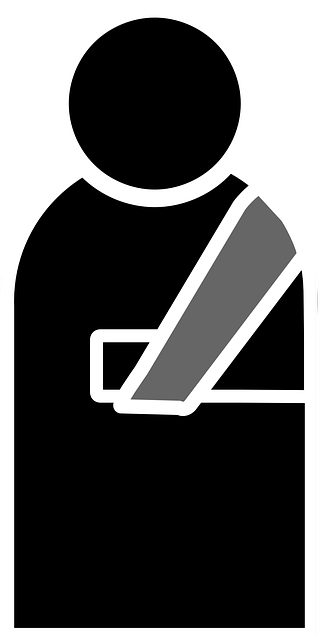Personal injury law protects victims and ensures justice by addressing harm caused by negligence or intentional actions. It covers incidents like car accidents, slip-and-falls, medical malpractice, and workplace injuries, aiming for fair compensation and accountability. Understanding this legal field enables individuals to navigate evidence gathering, lawsuits, and settlements, seeking justice under personal injury law. Consulting a specialized attorney is crucial for success, providing guidance through the process of strengthening cases with essential documentation.
“Dive into the intricate world of personal injury law, where individuals seek justice and compensation for unforeseen circumstances. This comprehensive guide explores key aspects of this legal domain. From understanding the fundamentals and common claim types to deciphering liability rules and the lawsuit process, we demystify personal injury law. Discover how victims can navigate their rights and pursue the redress they deserve, ensuring a fair outcome in challenging times. Explore these insights for an informed grasp on personal injury law.”
- Understanding Personal Injury Law: A Comprehensive Overview
- Common Types of Personal Injury Claims and Their Legal Process
- The Role of Liability and Compensation in Personal Injury Cases
- Navigating the Road to Justice: What to Expect in a Personal Injury Lawsuit
Understanding Personal Injury Law: A Comprehensive Overview

Personal injury law is a complex field that encompasses a wide range of legal issues related to injuries sustained by individuals due to the negligence or actions of others. It involves various types of accidents, including car collisions, slip and fall incidents, medical malpractice, and workplace injuries. Understanding this law is crucial for victims seeking justice and compensation for their losses.
This area of law focuses on protecting the rights of individuals who have been harmed physically, emotionally, or financially due to someone else’s carelessness or intentional acts. It provides a framework for holding responsible parties accountable and ensuring that victims receive fair and adequate redress. By navigating the intricacies of personal injury law, individuals can access legal remedies, understand their entitlements, and navigate the complexities of the justice system effectively.
Common Types of Personal Injury Claims and Their Legal Process

Personal injury claims encompass a wide range of legal cases where an individual suffers harm due to another party’s negligence or intentional actions. The most common types include motor vehicle accidents, slip and fall incidents, medical malpractice, workplace injuries, and product liability claims. Each type follows a distinct legal process under personal injury law.
For instance, in a car accident claim, the first step is usually to ensure immediate medical attention for the injured party. Subsequently, the victim or their legal representative will gather evidence, such as police reports, witness statements, and medical records, to build a solid case. This information is crucial when filing a lawsuit against the at-fault driver or entity. The legal process involves sending demand letters, negotiating settlements, and if necessary, attending court hearings to argue the case before a judge or jury.
The Role of Liability and Compensation in Personal Injury Cases

In personal injury law, liability and compensation are core concepts that drive cases forward. Liability refers to the legal responsibility assigned to one or more parties involved in an incident, often determined by factors such as negligence, recklessness, or intentional acts. When a person suffers an injury due to another’s actions, establishing liability is the first step in seeking justice and redress. This process involves gathering evidence, witness testimonies, and legal arguments to prove that the defendant owed a duty of care, breached this duty, and directly caused the plaintiff’s harm.
Compensation, on the other hand, focuses on providing fair and just reward for the injuries sustained. It aims to restore the victim to their pre-incident state as much as possible, encompassing both economic and non-economic damages. Economic damages refer to quantifiable losses like medical bills and lost wages, while non-economic damages cover pain and suffering, emotional distress, and other subjective experiences. In personal injury law, the goal of compensation is not only to financially support victims during their recovery but also to hold accountable those responsible for causing harm, ensuring deterrence and a sense of justice within the legal system.
Navigating the Road to Justice: What to Expect in a Personal Injury Lawsuit

Navigating the legal system after an injury can be overwhelming, but understanding the process is key to achieving justice. When filing a personal injury lawsuit, the first step is to consult with an experienced attorney who specializes in this area. They will guide you through the initial stages, which often involve gathering evidence, such as medical records and witness statements, to strengthen your case. This critical phase ensures that all necessary information is obtained, setting the foundation for the upcoming legal battles.
As the lawsuit progresses, both parties will exchange information, leading to a more detailed understanding of the case. Court appearances may be required, where lawyers present their arguments and evidence. The process can be complex, with various legal maneuvers and potential settlements or trials ahead. Having a clear picture of these stages empowers individuals to make informed decisions, ensuring they receive fair compensation for their injuries under personal injury law.
Personal injury law plays a vital role in ensuring justice for individuals harmed due to someone else’s negligence. By understanding the various types of claims, the legal process involved, and the concept of liability and compensation, victims can navigate their path to justice effectively. This comprehensive overview equips readers with knowledge about personal injury law, empowering them to take informed steps towards seeking the redress they deserve.
